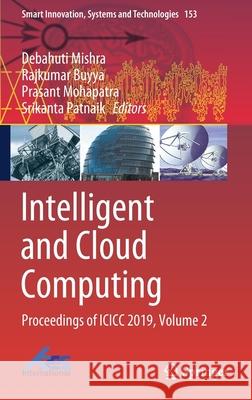Intelligent and Cloud Computing: Proceedings of ICICC 2019, Volume 2 » książka
topmenu
Intelligent and Cloud Computing: Proceedings of ICICC 2019, Volume 2
ISBN-13: 9789811562013 / Angielski / Twarda / 2020 / 697 str.
Intelligent and Cloud Computing: Proceedings of ICICC 2019, Volume 2
ISBN-13: 9789811562013 / Angielski / Twarda / 2020 / 697 str.
cena 603,81
(netto: 575,06 VAT: 5%)
Najniższa cena z 30 dni: 578,30
(netto: 575,06 VAT: 5%)
Najniższa cena z 30 dni: 578,30
Termin realizacji zamówienia:
ok. 22 dni roboczych.
ok. 22 dni roboczych.
Darmowa dostawa!
Kategorie:
Kategorie BISAC:
Wydawca:
Springer
Seria wydawnicza:
Język:
Angielski
ISBN-13:
9789811562013
Rok wydania:
2020
Wydanie:
2021
Numer serii:
000405987
Ilość stron:
697
Waga:
1.16 kg
Wymiary:
23.39 x 15.6 x 3.81
Oprawa:
Twarda
Wolumenów:
01
Dodatkowe informacje:
Wydanie ilustrowane











